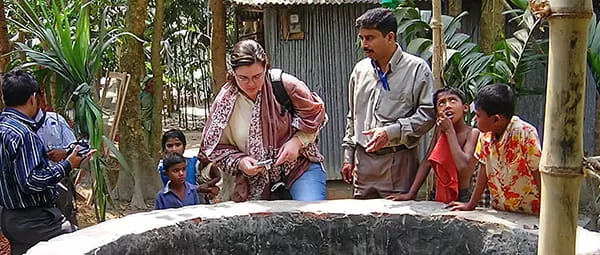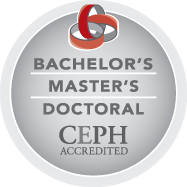Environmental and Occupational Health
PhD in Public Health Concentration
Solve environmental and occupational problems that impact public health
Improve the health and well-being of workers and communities
The Oregon State University public health doctoral degree program with a concentration in environmental and occupational health (EOH) provides research-based training for identifying and measuring hazards, studying potential adverse health effects and discovering new ways to control hazards.
Our program’s specialty areas are ergonomics, occupational safety, environmental health and environmental epidemiology.
Our environmental and occupational health doctoral graduates go on to prestigious post-doctoral training, and academic and research positions. They work in a variety of settings, both locally and globally, in government agencies, academia and private industries.
Environmental and occupational health research
As an environmental and occupational health doctoral student, you will collaborate with a world-class faculty member on interdisciplinary, community-engaged research spanning a variety of areas, including:
Various exposures:
- Heavy metals
- Air pollutants
- Climate
- Whole-body vibration
- Physical hazards
Various health outcomes:
- Cardiovascular health
- Musculoskeletal health
- Respiratory health
- Cumulative trauma
- Traumatic injuries
Estimated costs
The Public Health PhD program is a 109-credit program that can be completed within 4-5 years on a full-time credit load (except for summer).
The estimated costs for the program are broken down as follows:
Resident costs for years 1-3
$15,795 per year
Resident Tuition ($13,446)
+ Fees ($2,349)
Each additional year after 3
$6,832 per year
Resident Tuition ($4,482)
+ Fees ($2,349)
Non-resident costs for years 1-3
$31,698 per year
Non-resident Tuition ($29,349)
+ Fees ($2,349)
Each additional year after 3
$12,132 per year
Non-resident Tuition ($9,783)
+ Fees ($2,349)
Tuition and fees estimates were calculated using the 23-24 academic year tuition and fees tables in combination with the tuition calculator. Please note, tuition and fees can change for the 24-25 academic year.

Spatial Health Laboratory
The Spatial Health Laboratory seeks to understand how environmental conditions influence human health and translate this information into effective policy and prevention activities.

Occupational Ergonomics and Biomechanics Laboratory
The Occupational Ergonomics and Biomechanics Laboratory uses a variety of bioinstrumentation to characterize work-related physical exposures and investigate their relationships with adverse health outcomes with an ultimate goal of promoting health and well-being at workplaces.

Environmental Exposure and Biomarker Lab
The Environmental Exposure and Biomarker Lab measures metal concentrations in environmental and biological samples in order to determine personal exposure to contaminants.
Your experience as a public health doctoral student

See which courses you’ll take as a public health doctoral student.

What you’ll learn in the environmental and occupational health concentration.

Get information about assistantships, your investment and more.
Add a graduate minor in ergonomics
The graduate minor in ergonomics is for master’s and doctoral students who seek additional formal training and mentoring in ergonomic practice and human-centered design.

Andres Cardenas, PhD-EOH ’15, MPH-Biostatistics ’12
Assistant Professor of Epidemiology and Population Health at Stanford University
“The EOH doctoral program at OSU provided me with excellent technical skills that I continue to apply daily as a researcher and faculty. The small program made it possible for me to work one-on-one with faculty across the school, learn from other graduate students and develop strong relationships with multiple mentors. To this day I remain connected with many of my classmates and professors that continue to serve as mentors.”
We’re here to help
We’re happy to connect with you by email, phone or virtual meetings.
For questions about the application process and requirements, contact College of Health graduate admissions.
For academic or professional information specific to the environmental and occupational health doctoral program, please contact Program Director Perry Hystad, PhD

Accreditation
Our MPH and PhD Public Health programs are accredited by the Council on Education for Public Health. This distinction ensures your education meets the nationally-agreed-upon standards developed by public health academics and practitioners.